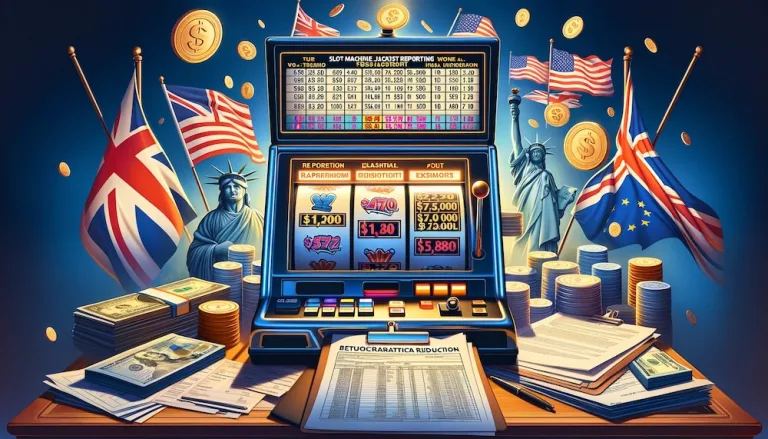In the bustling heart of the Las Vegas Strip, as well as in the myriad of regional casinos and a majority of those aboard cruise ships, the thrill of hitting a jackpot on the slot machines is unparalleled. The dream, of course, is to land a monumental win, yet there exists a sweet spot for winnings just shy of $1,200 for many a punter. The reason? It skirts around triggering the cumbersome process known as a “hand pay,” where winnings of $1,200 and above necessitate an attendant to issue a tax form for reporting to Her Majesty’s Revenue and Customs (HMRC) in the UK or the Internal Revenue Service (IRS) in the United States.
This threshold has remained unchanged since 1977, leading to calls from gamblers and industry insiders alike for an update to reflect modern economic realities. The process not only adds additional work for casino staff but also results in frustrating delays for players, who find themselves in limbo, unable to continue playing while they await the necessary paperwork.
The situation may be set for a change, however, thanks to the efforts of Representatives Dina Titus (D-Nevada) and Guy Reschenthaler (R-Pennsylvania). They have championed a bill proposing to raise the limit that necessitates a W2-G form to $5,800, a move that has garnered a positive response from the IRS. According to a recent advisory council report, the IRS is considering adjusting the threshold to $5,800, a move that would modernise an outdated regulation and stimulate growth across the legal gaming sector, not just in Las Vegas but throughout local and Tribal communities nationwide.
Such a change is widely supported within the casino industry, with major players on the Las Vegas Strip, including Caesars Entertainment and MGM Resorts International, backing the initiative. A higher threshold would mean fewer interruptions for winners and potentially increased play in casinos, as patrons would no longer have to pause their gaming experience for the hand-pay process. This rule is also pertinent to most cruise lines operating out of the U.S., such as Royal Caribbean and Carnival, affecting a broad spectrum of the gambling community.
Despite the IRS Advisory Council’s endorsement of the new limit, along with suggestions to include provisions for annual adjustments for inflation, official action is still pending. The move would alleviate the bureaucratic burden on both businesses and players, ensuring the tax code’s relevance in today’s economy.
The push for reform has also found support within the gaming industry, with the American Gaming Association’s Chief Executive Bill Miller highlighting the outdated nature of the current slot tax threshold. The change would alleviate unnecessary burdens for consumers, operators, and the IRS alike. The Association, which counts nearly every major U.S. casino operator among its members, except Caesars Entertainment, advocates for the removal of barriers inhibiting the gaming industry’s growth and positions itself as a strong supporter of economic contribution, community partnership, and consumer protections.
As the dialogue continues, the anticipation grows within the gaming community for a decision that could redefine the slot machine experience. This potential policy shift represents not just a win for individual gamblers but a significant step forward for the industry, promising to enhance the vibrancy and dynamism of casino floors from the Las Vegas Strip to cruise ships sailing the high seas.

David Garato is a luminary in gaming journalism, renowned for peeling back the curtain on the gaming world with his witty and insightful commentary. A decade into weaving stories from the pixelated edges of indie games to the expansive universes of AAA titles, David’s work is a thrilling blend of analysis and adventure. When not writing, he’s live-streaming, sharing his gaming exploits with an engaged and growing audience. David doesn’t just write about games; he lives them, making him a trusted guide in the gaming community.


